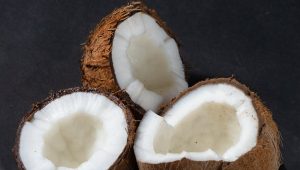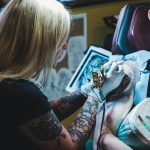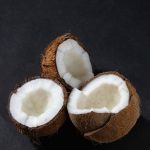Ten years ago, when I first left the humidity of Santo Domingo for the brisk plateau of Bogotá, I assumed my island-conditioned lungs would handle the thin air with macho Caribbean ease. Spoiler: they didn’t. Within thirty minutes of landing at El Dorado Airport, I felt as if a toddler were sitting on my chest while someone simultaneously played bongos in my head. Somehow my basic survival Spanish—gracias, la cuenta, ¿dónde está el baño?—felt useless when what I really needed was a crash course in how to whine about altitude sickness without sounding like a bumbling gringo. That uncomfortable afternoon became a turning point in my mission to upgrade my Spanish Vocabulary beyond beach bars and colmados, and toward something that could actually keep me breathing.
The Cultural Pulse: How Colombians and Dominicans Talk About Health
Before diving into the nitty-gritty of lungs, headaches, and pounding hearts, it helps to feel the cultural heartbeat of each country. In the Dominican Republic, a visit to the doctor often begins with gossip: the receptionist wants to know how your tía in Santiago is doing, or whether you tried that new sancocho place on Independencia. Small talk is the lubricant that keeps the Caribbean social engine purring. In Bogotá, clinics move faster, conversations lean formal, and people respect personal space with Andean restraint. Yet even here, a warm buenos días, doctor, ¿cómo amaneció? opens doors—and throats, if you’re gasping for air at 2,640 meters.
Bouncing between these cultures sharpened my ear for what questions doctors expect and which phrases signal you’re not a tourist flailing at Google Translate. As you expand your Spanish Vocabulary, notice the registers: Colombians instinctively use usted with medical staff, while Dominicans flip to tú once the white coat cracks a joke. Mastering that code-switch makes you sound more natural than any textbook conjugation drill.
La montaña contra el mar: Talking About Altitude Symptoms
Los síntomas que importan
Let’s name the beast: el mal de altura (altitude sickness), sometimes called el soroche in Andean slang. The minute you say creo que tengo soroche, every Bogotano within earshot nods empathetically. You might need to describe:
dolor de cabeza (headache), dificultad para respirar (shortness of breath), náuseas (nausea), and the very poetic palpitaciones (heart palpitations). Slip these into sentences that show you’re narrating an experience rather than reading a glossary. For instance: Siento un dolor de cabeza leve, pero la respiración se me hace pesada desde que llegué ayer. Your Spanish Vocabulary grows in real time when you tie words to visceral memory—like that firmer heartbeat you heard echoing in your ears walking La Candelaria’s hills.
Contextualizing the pain
Colombian doctors often ask about timeline and triggers. They may say, ¿Desde cuándo presenta los síntomas? or ¿Ha notado si empeoran al subir escaleras? A solid answer beats a shrug: Empezaron anoche después de cenar a las ocho, en el hotel. Notice the precision. Dominicans might deliver a longer story peppered with gestos and coño for emphasis, but in Bogotá brevity equals respect for the doctor’s schedule and heightens medical clarity.
Sacando cita: Navigating the Colombian Clinic System
La EPS y la clínica privada
If you’re registered with an EPS (the national health network), you set an appointment—una cita—sometimes weeks out. Private clinics feel more Dominican in spontaneity; they might slot you in the same afternoon. Either way, front-desk Spanish matters. Greet the receptionist with buenas, state your need, then add a courtesy flourish: ¿Sería posible conseguir una cita hoy? Es que me falta el aire. Colombians appreciate that little es que softener. It signals humility rather than entitlement, a nuance every expat should file in their cultural cabinet.
Paperwork déjà vu
Expect forms—or as they say, formularios. You’ll be asked for your cédula (ID), insurance details, and sometimes a local phone number. Many Dominicans instinctively write their WhatsApp digits, but Colombians often prefer a standard cell number. Your Spanish Vocabulary for personal data—apellido, fecha de nacimiento, dirección—gets drilled in the lobby. Embrace it; every scribble threads your mind closer to fluency.
Talking to the Doctor: From Symptoms to Solutions
Set the scene
Once inside the consultorio, resist the urge to overshare like you might with a Dominican medic who doubles as a confessor. Instead, start concise: Doctor, me siento mareado y me falta el aire desde que llegué a la ciudad. That sets the altitude context while inviting follow-up questions. When the stethoscope appears, you’ll hear instructions: Respire profundo… Exhale… Otra vez. Mirror the rhythm and avoid the beginner’s mistake of holding your breath too long; just follow the cadence.
Medications and local lingo
If pills enter the picture, you’ll encounter acetazolamida or plain old ibuprofeno. Colombians sometimes drop brand names like Dolex for pain relief, while Dominicans would say un panadol. Recognizing interchangeable terms across borders helps your pharmacy adventures. Also note that in Bogotá, pharmacies are droguerías, whereas in Santo Domingo people more often say farmacias. Match the term to the asphalt under your shoes—that’s cultural fluency first, linguistic second.
Spanish Vocabulary Table
| Spanish | English | Usage Tip |
|---|---|---|
| el soroche | altitude sickness | Common in Colombia and Peru; almost unknown in the DR |
| falta de aire | shortness of breath | Pair with me da (I get) for natural phrasing |
| mareo | dizziness | Say tengo mareo rather than estoy mareado for milder cases |
| palpitaciones | heart palpitations | Doctors use it regardless of formality |
| escalofríos | chills | Roll the r lightly; Colombians notice enunciation |
| una cita | an appointment | Remember it doubles as “a date,” context decides |
| droguería | pharmacy | Use in Colombia; in the DR, stick to farmacia |
| receta | prescription | Can also mean a cooking recipe—fun cognate crossover |
Example Conversation: En la Consulta Médica
Doctor (Bogotá, formal): Buenas tardes, señor. ¿Qué lo trae por aquí?
Good afternoon, sir. What brings you here?
James: Doctor, me siento con un fuerte dolor de cabeza y me falta el aire desde ayer.
Doctor, I have a strong headache and I’m short of breath since yesterday.
Doctor: ¿Ha presentado fiebre o escalofríos?
Have you had fever or chills?
James: No, nada de fiebre, pero sí algo de mareo cuando subo escaleras.
No, no fever, but I do get dizzy when I climb stairs.
Doctor: Entiendo. Vamos a revisarlo. Por favor, respire profundo y exhale… otra vez.
I understand. Let’s examine you. Please breathe in deeply and exhale… again.
James: Así está bien, doctor.
Like this, doctor.
Doctor: Su saturación está un poco baja por la altura. Le recetaré acetazolamida.
Your oxygen level is a bit low due to the altitude. I’ll prescribe acetazolamide.
James (informal Caribbean reaction but in Bogotá): ¡Qué vaina! Gracias, doctor.
Dang it! Thanks, doctor.
Doctor (smiling at the Dominican slang): **Tranquilo**, en dos días se sentirá mejor.
Relax, in two days you’ll feel better.
Note: The Colombian doctor sticks to usted throughout; James slips a Caribbean **vaina** that marks his DR roots. That cross-flavor exchange keeps the conversation authentic.
The After-Care Odyssey: Droguería Runs and Abuela Remedies
You leave the clinic clutching a receta written in handwriting that could pass for ECG scribbles. At the droguería, the pharmacist may ask, ¿Desea genérico o de marca? If you answer, Genérico está bien, gracias, you not only save pesos but flex a piece of Spanish Vocabulary textbooks rarely teach. Meanwhile, your Dominican instincts whisper to grab a bottle of agua de coco and some suero—the Caribbean’s electrolyte Holy Grail. Mixing Andean prescriptions with island folk wisdom feels like cultural bilingualism for the body.
Friends back in Santo Domingo later message: Loco, tómate un té de jengibre con miel y sal de frutas. Colombian pals counter with un canelazo calentico. I sample both. Whether placebo or panacea, the ritual of preparing each brew chisels another groove in my memory palace of flavors and phrases. Every medicinal sip tracks another neuron to shelve contextual Spanish Vocabulary.
From Vocabulary to Identity: Why Cross-Country Exposure Accelerates Fluency
Academies teach us that vocabulary is a list, but Latin America teaches it’s a web. One morning you’re in Bogotá learning that guayabo means hangover; the next, in Santo Domingo, resaca or the even juicier **jumera** serve the same purpose. The oscillation forces your brain into agile mapping. You stop translating and start associating: altitude equals soroche, beach sunburn equals quemadura. That’s how you learn Spanish as an expat—by sewing words to geography and heartbeat to accent.
Altitude sickness became my unlikely linguistic coach. Every gasp demanded a phrase; every tablet invited a question. Soon I wasn’t just surviving Bogotá; I was eavesdropping in the waiting room, picking up how Paisas say pues every other breath and imagining how a Dominican doctor might tease them for it. Such mental games rewire your ear faster than any podcast because stakes (like, say, oxygen) feel real.
Final Reflections: Turning Soroche into Fluency Fuel
If you find yourself on that first steep walk up Monserrate, lungs pleading for thicker air, listen to the words leaving your mouth. Are they textbook leftovers or living tiles in your mosaic of Caribbean-Andean Spanish? My advice: narrate your symptoms, your wonder, even your complaints—in Spanish, always. Let the pharmacist correct your accent, let the nurse raise an eyebrow at your Dominican interjection, let the taxi driver teach you the Bogotá slang for traffic jams (trancón). Each mini-correction tightens the weave.
Back on the island, the sea-level breeze now feels indulgent, yet my brain keeps budgeting altitude vocabulary like a linguist hoarder. The constant shuffle between seas and summits reminds me that language is less a mountain climbed once than a pulse adjusted daily. So to my fellow wandering expats: drink water, pack aspirin, and pack curiosity. Then come back here and tell me—did your doctor in Medellín call nausea asco? Did your dentist in Santiago (DR) surprise you with Colombian courtesy? Drop your stories and any fresh Spanish Vocabulary in the comments. Our lungs may differ, but our quest to sound human in Spanish unites us on every staircase from Bogotá to Barahona.






